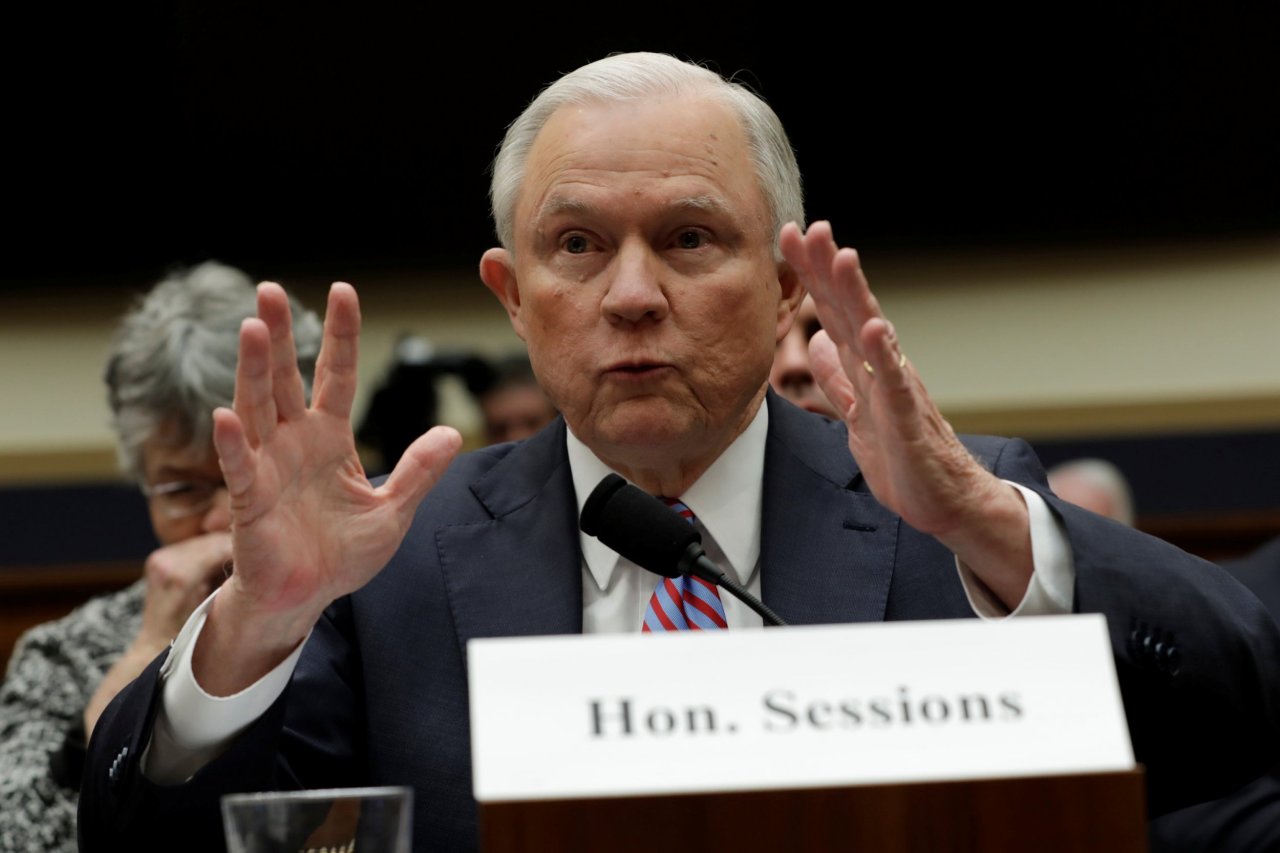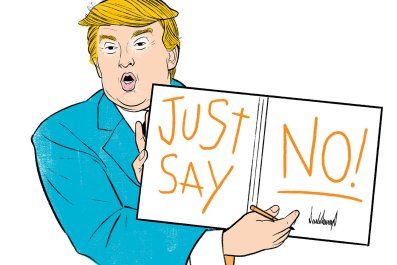Tears streamed down Claudia Jendron's face as her doctor patted her hand. "This is going to work," the doctor said.
Eight years ago, a spinal-fusion-gone-wrong left Jendron—a 66-year-old resident of Rochester, New York—ailing. She'd tried a number of options—acupuncture, opioids, epidural shots. Anything to relieve the pain. She wished to sit comfortably at her grandchildren's birthday parties, but nothing worked. Now, the doctor wanted to try a new treatment, one involving medical marijuana.
To Jendron's surprise, her doctor was right. Two days after starting a tincture (a liquid cannabis extract dropped under the tongue), her crushing pain subsided to something more manageable. "It's just... It's amazing," she says, "I can lean over and hug my grandkids without screaming anymore."
New York is one of 29 states (plus the District of Columbia) where medical marijuana is legal. But Congress has until December 22 to decide whether a federal law permitting it—subject to approval of the states—will be part of legislation needed to fund the government through the next fiscal year.
Attorney General Jeff Sessions is hoping the law, known as the Rohrabacher-Farr amendment, will change. In May, he pushed back against it, sending a strongly worded letter to Congress that asked lawmakers to oppose protections for legal weed and allow him to prosecute the use, distribution and possession of medical marijuana. In November, he announced that the Justice Department would review the current policies on legal pot enacted by the previous administration to see if they went too far.
Those policies are much more lenient than what Sessions wants. In 2014, when President Barack Obama was in office, the Rohrabacher-Farr amendment passed with 170 Democrats and 49 Republicans in favor. The result: The attorney general could no longer employ Drug Enforcement Administration agents (or other government resources) to bust medical marijuana operations. The move followed a memo written by Deputy Attorney General James Cole that said the Justice Department would refrain from prosecuting medical marijuana businesses and users in states where they were legal. The goal was to prioritize more serious marijuana offenses—a major shift in the U.S., where medical marijuana busts were once common.
Sessions, a staunch critic of legalizing marijuana, is so anti-weed that he once said he thought the KKK was "OK, until I found out they smoked pot." (He says it was a joke.) More recently, at a speech in Richmond, Virginia, in March, he said: "I am astonished to hear people suggest that we can solve our heroin crisis by legalizing marijuana—so people can trade one life-wrecking dependency for another that's only slightly less awful."
Decades ago, his position wasn't controversial. Until the late 1990s, marijuana was considered little more than a gateway to much more dangerous drugs. But new research praising pot's medicinal properties for treating chronic pain, increasing appetite and improving sleep for AIDS/HIV patients, among other uses, has changed public opinion. Today, 94 percent of Americans support medical marijuana, according to an August poll by Quinnipiac University. And 61 percent support fully legalizing weed, according to the same poll.
Sessions, however, has not budged. "Why would he focus on this issue?" says Philip Heymann, a Harvard Law School professor and former Justice Department official. "Because he's seven years out of date."
Others argue that prosecuting medical marijuana operations could take valuable resources away from law enforcement. "With respect to everything else going on in the U.S., this is pretty low-priority," says former Attorney General Alberto Gonzales, who set the precedent for prosecuting legal medical marijuana outfits.
Without Rohrabacher-Farr in his way, Sessions could send DEA agents into a medical marijuana dispensary in any state to bust it. But analysts say the feds wouldn't likely target patients like Jendron. Ilya Shapiro, a constitutional studies fellow at the Cato Institute, a conservative think tank, says law enforcement would likely first prosecute distributors and producers in gross violation of federal laws before the average pot smoker—"the same way police go after rapists and murderers before they go after jaywalkers."
With public support across the country, a full reversal seems extremely unlikely, according to those who work in the industry. "The toothpaste can't be put back in the tube," says Nicholas Vita, the CEO of Columbia Care, a medical marijuana health care company with dispensaries across the country.
Some lawmakers agree. "The train has left the station for marijuana reform," says Democratic Representative Earl Blumenauer of Oregon, one of the amendment's sponsors. "The American public demands it."
Yet Sessions does have his supporters. Kevin Sabet, president of the anti-legalization nonprofit Smart Approaches to Marijuana, says legal weed, even for medical purposes, may not be as harmless as some make it out to be. He cited a September study by the National Institute on Drug Abuse that linked marijuana use to opioid abuse. "A lot of people are being peddled this by an industry that wants to make money, like any other industry," he says. "I have a really hard time with the very small handful of studies out."
The research is limited in the U.S., analysts say, because the government categorizes marijuana as a Schedule 1 drug, making it hard to get DEA approval for that research. (Outside of the U.S., particularly in Israel, research is becoming more commonplace, but even there, funding can be scarce, and most research happens on a small scale.) A recent study in Colorado found a reversal of opioid deaths following recreational pot legalization. In August, two studies, however, found that evidence of its efficacy in chronic pain and post-traumatic stress disorder treatment was lacking.
For patients like Jendron, however, the proof is her own experience. Chronic pain "manipulates your life," she says. "I'm smiling because I don't hurt anymore."















